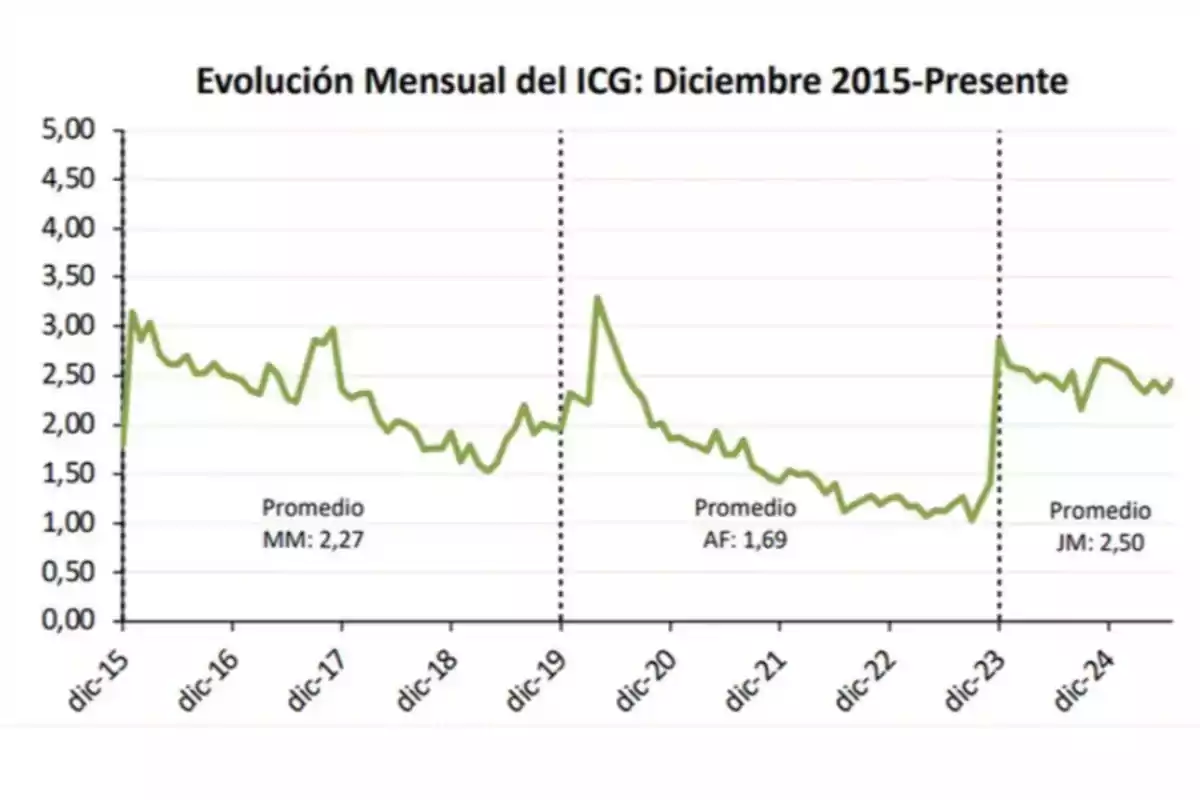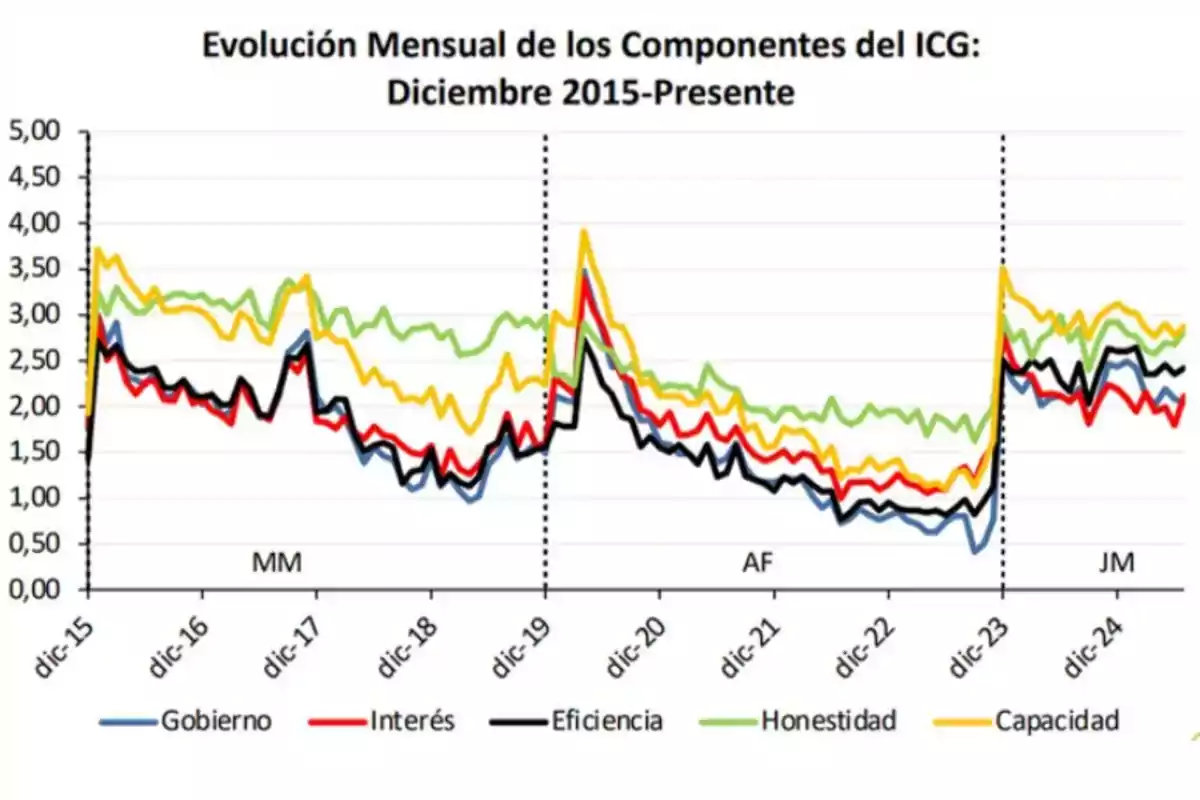
Confidence in Javier Milei's government grew by 4.9% in July.
According to the monthly survey by Universidad Torcuato Di Tella, the Government Confidence Index rose by 4.9%
Society's confidence in the government of Javier Milei recorded a 4.9% increase in July, reaching 2.45 points on the Government Confidence Index (ICG) scale developed by Universidad Torcuato Di Tella.
The ICG, developed since 2001 by the School of Government at UTDT based on a national survey by Poliarquía Consultores, measures public perception of government management on a scale from 0 to 5. July's measurement was consolidated as a sign of stabilization in the political climate.
According to the technical report, considering the expected variability of estimates due to sampling error, "the ICG has stabilized in recent months".

The July figure implies a year-on-year increase of 3.3%, and when compared to previous administrations, it exceeds the same month in 2017 by 9.6% under Mauricio Macri's mandate, and stands 44.3% above the July 2021 record during Alberto Fernández's presidency. In the 19 months of the libertarian administration, the ICG average was 2.50 points, similar to the average of the early stages of Cambiemos (2.59) and significantly higher than that of the outgoing Kirchnerist administration (2.18).
The disaggregated analysis of the index shows improvements in four of the five components evaluated. The greatest increase was in the item "concern for the general interest", with a 17.5% increase, reaching 2.11 points. "The honesty of officials" (5.2%, to 2.82 points), "the ability to solve the country's problems"(3.6%, to 2.88 points), and "efficiency in public spending management" (3%, to 2.42 points) also rose. The only component that declined was "overall evaluation of the government", which fell 2.4% to 2.04 points.
At the demographic level, confidence was higher among men (2.64 points, with a 3.1% increase)than among women(2.25 points, with a 6.1% improvement). By age, young people between 18 and 29 years old showed the highest level of confidence (2.79 points), followed by those over 50(2.53 points) and finally by those between 30 and 49 years old(2.26 points).
From a geographic perspective, confidence increased in all areas, with a notable rise in the Autonomous City of Buenos Aires, with a 16.7% increase to 2.45 points. In the country's interior, the ICG reached 2.58 points(3.6% more than in June), while in Greater Buenos Aires it reached 2.19 points(3.8% increase).

In educational terms, the index was higher among those who completed tertiary or university studies(2.50 points, with a 7.3% increase). Those with a secondary level(2.45 points, unchanged) followed, and lastly, respondents with primary education(2.15 points, although with a 7.5% increase).
The study also analyzed confidence according to experience with crime. Among those who were recent victims of a crime,confidence grew 19.9% to 2.23 points, while among those who were not, it rose 1.6% to 2.53 points.
Finally, the report highlights the strong correlation between economic optimism and political confidence. Among those who believe the economic situation will improve within a year, the ICG reached 4.17 points(2.2% increase). Those who expect it to remain the same followed, with 2.81 points(21.6% increase), and those who believe it will worsen, with a much lower level of 0.55 points, although with a relative improvement of 14.6%.
The July ICG data reinforce the reading of a social support base that remains stable and at higher levels than in previous political cycles. In a scenario of deep institutional transformation and fiscal austerity policies, the government of Javier Milei continues to generate relatively solid levels of confidence compared to previous administrations.
More posts: